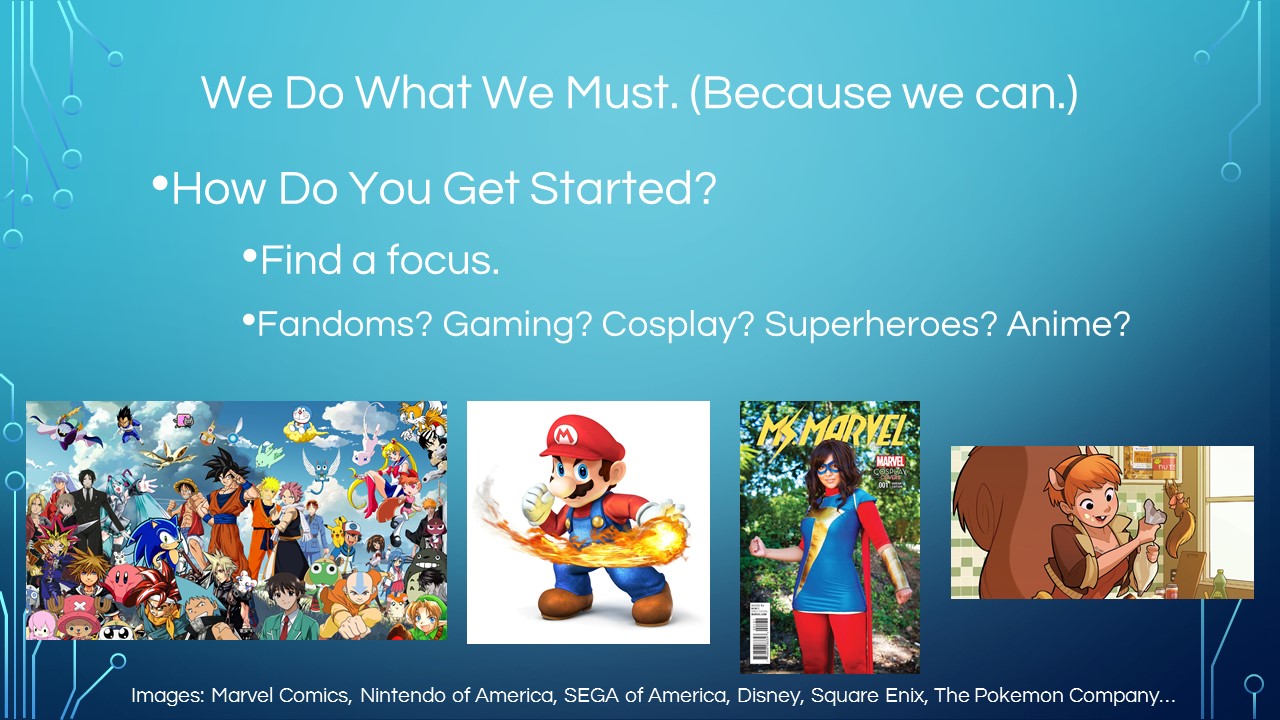
So you're interested in starting a mini-con or doing a fandom event? Great! There's a lot that we're going to end up doing before the event gets put on.
It's very easy to get the idea that you want to put on a convention for everyone and do as many things as possible, but the truth of the matter is that such a thing will quickly become a beast that gets away from you and everyone else who you are trying to get to help yourselves out. And trying to be everything to everyone might mean you get less attendance than a more focused meeting. So what you want to start with is finding the right kind of focus for your event. Keep it limited in scope, and you'll be able to keep the work down to a manageable amount.
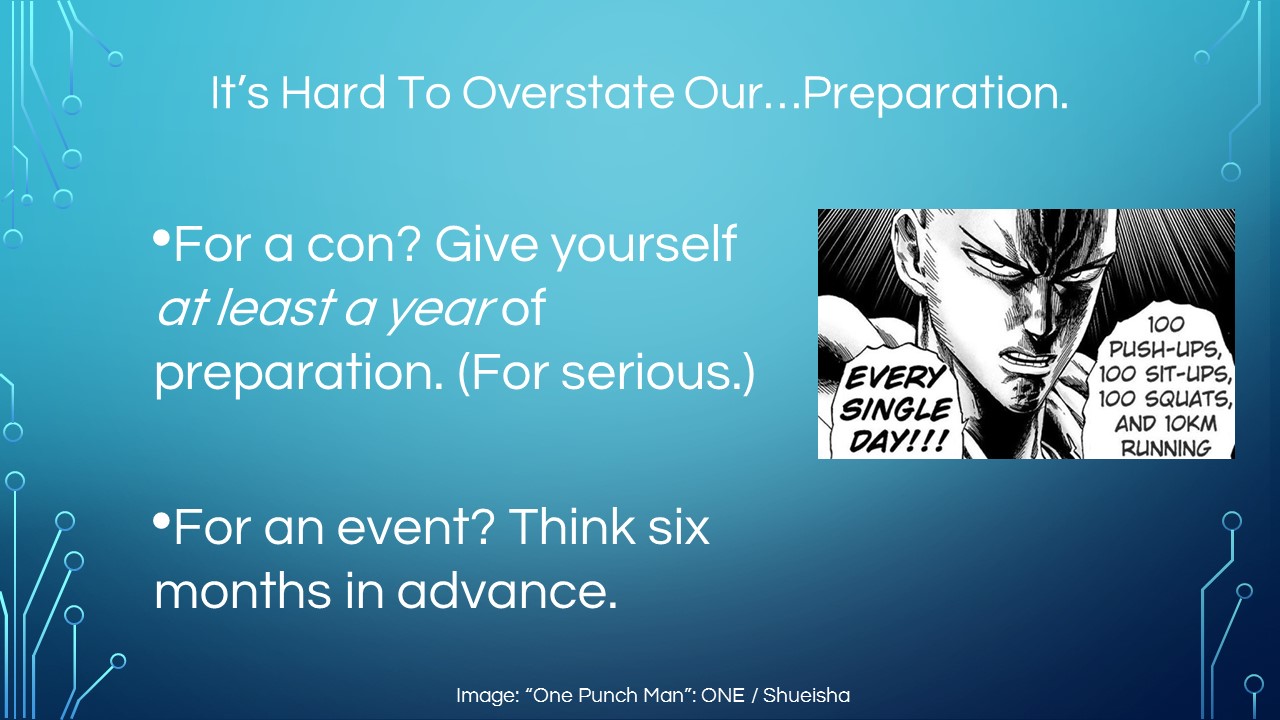
It's also important, right at the beginning, to get you to understand the timeline that you're working with here. If you want to make a mini-con, a full day or multiple-day event, if it's your first time, expect to spend a year's worth of time recruiting all the people you need, getting the space you want, making sure everyone understands their roles, and to put all of the pieces into place so that you'll have a smooth and successful convention.
Even for smaller events that will take less time, a first-time event will likely still take six months or more to plan out completely. Some of this is the speed of bureaucracy, and some of this is that you have to be looking that far out to be able to get the things and people who will make your con experience excellent.
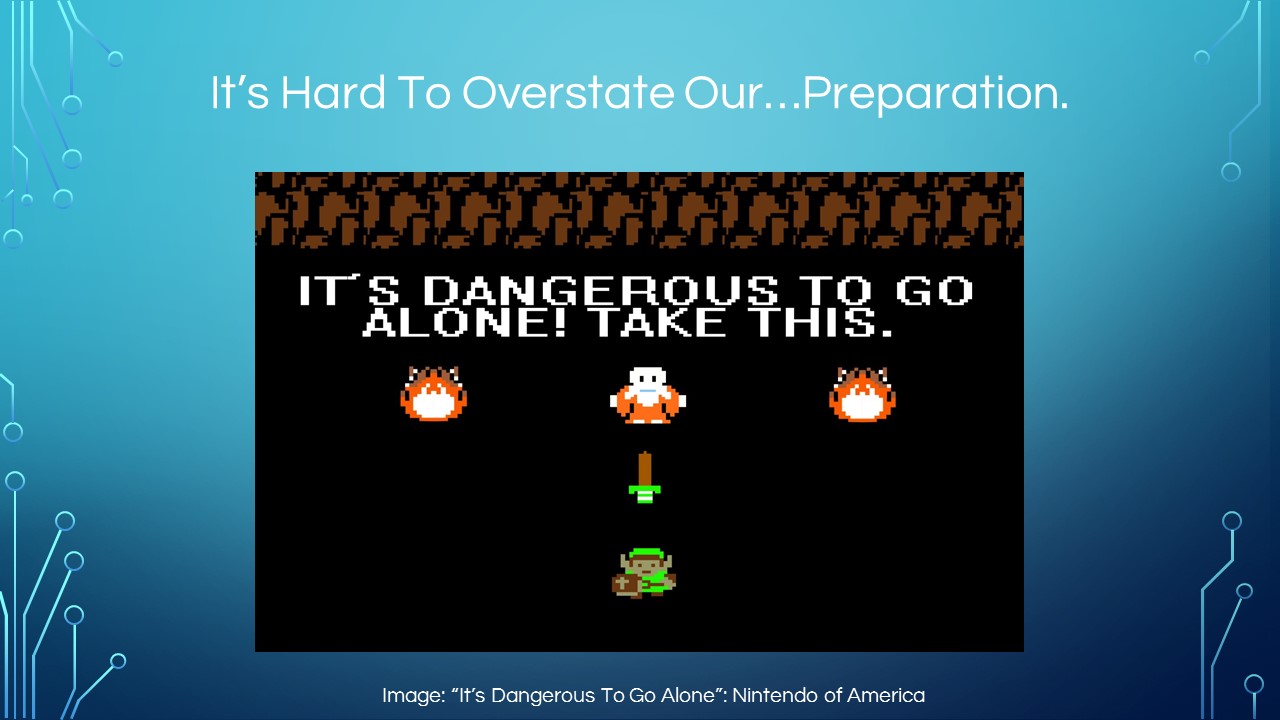
It's dangerous to go alone. Doing all of this by yourself is the sort of thing that leads to hair-tearing, stress, and not wanting to do it again after the first run, or burning out on it while you're still trying to get it planned and ready. Recruit others from your organization to help you and to take on specific parts of the event. Yes, this does mean you're trusting them not to flake, but events like these get done because of a lot of people working together, not a single genius that manages to hold everything together until the event happens. Especially because you can't be everywhere during the actual event.
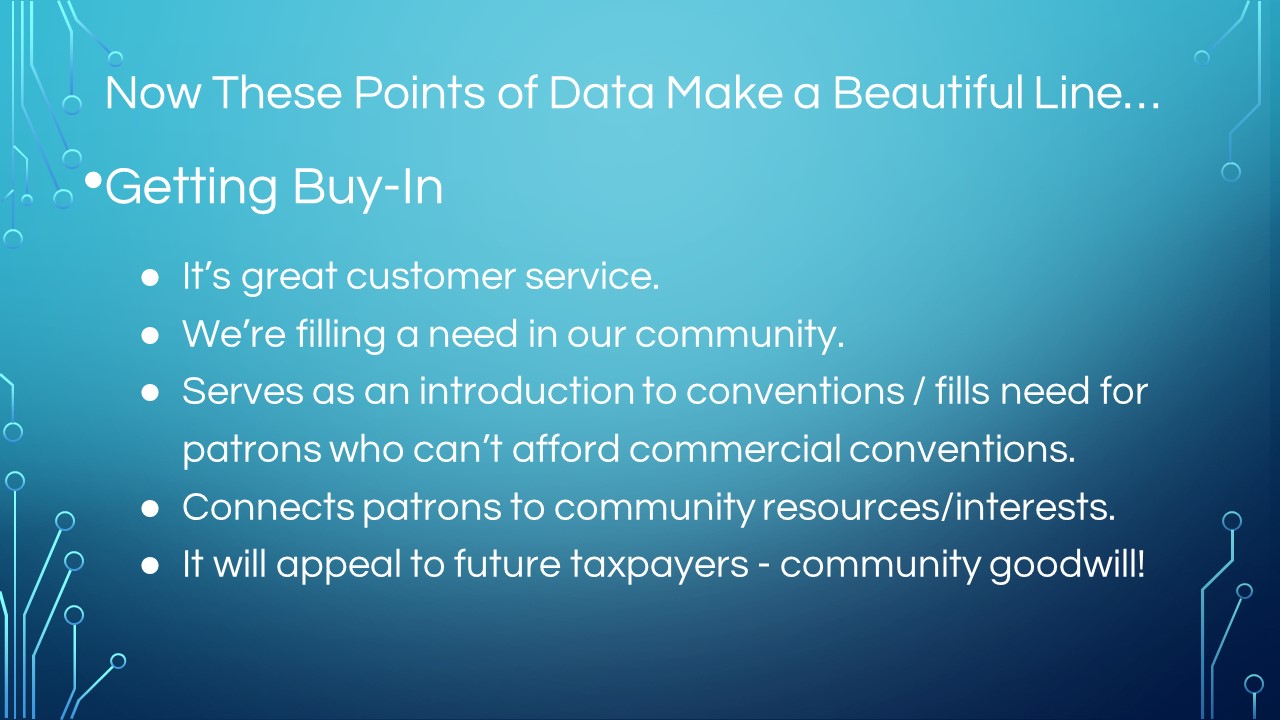
So, the first thing to do is convince the people who are in charge that this is a worthwhile endeavour. Common talking points to use include:
- It's great customer service
- We're filling community needs
- It's much more affordable than the bigger, more commercial conventions.
- We're connecting people to resources in the community
- Events for teens mean those future taxpayers will think the library is worthwhile and support our levy / bond votes
Those are philosophical and practical things to talk about. One of the common things that will be discussed is how much you anticipate the cost of the event will be. Most libraries and library systems don't have plenty of money to spare to give to your project so you can purchase everything. Which means we have to talk about how to put on a great event on a shoestring (or less) budget.
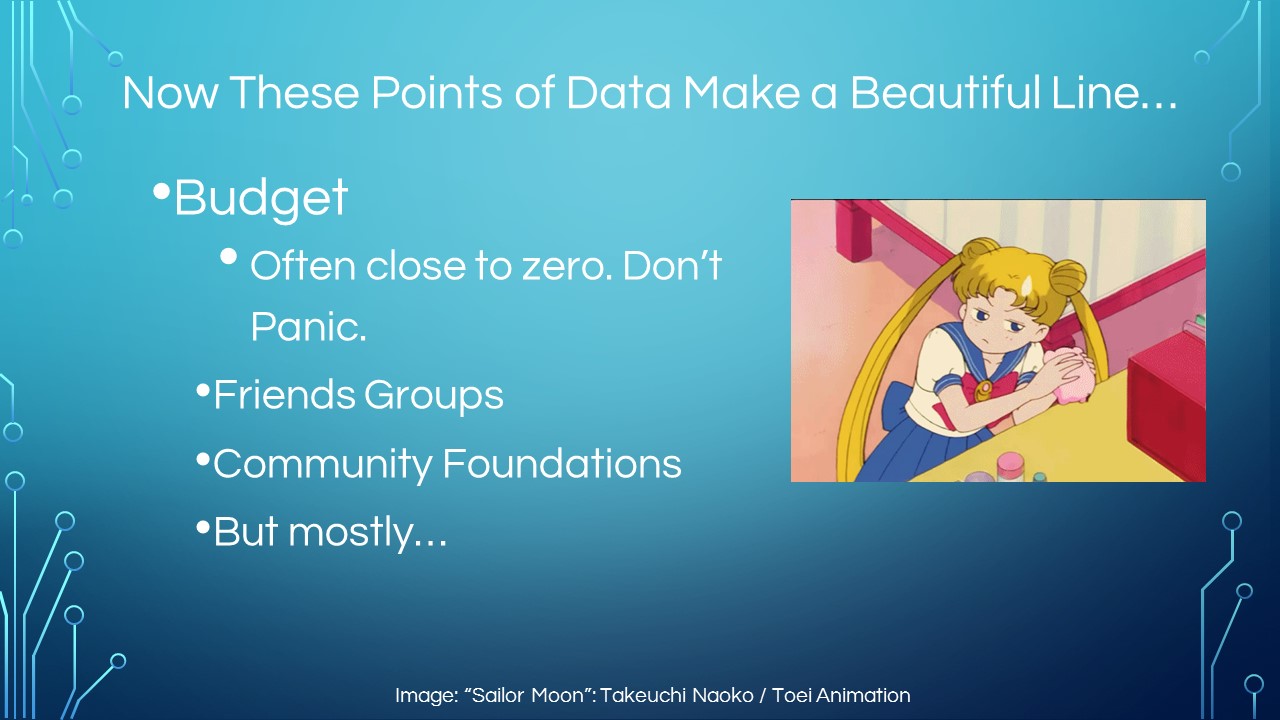
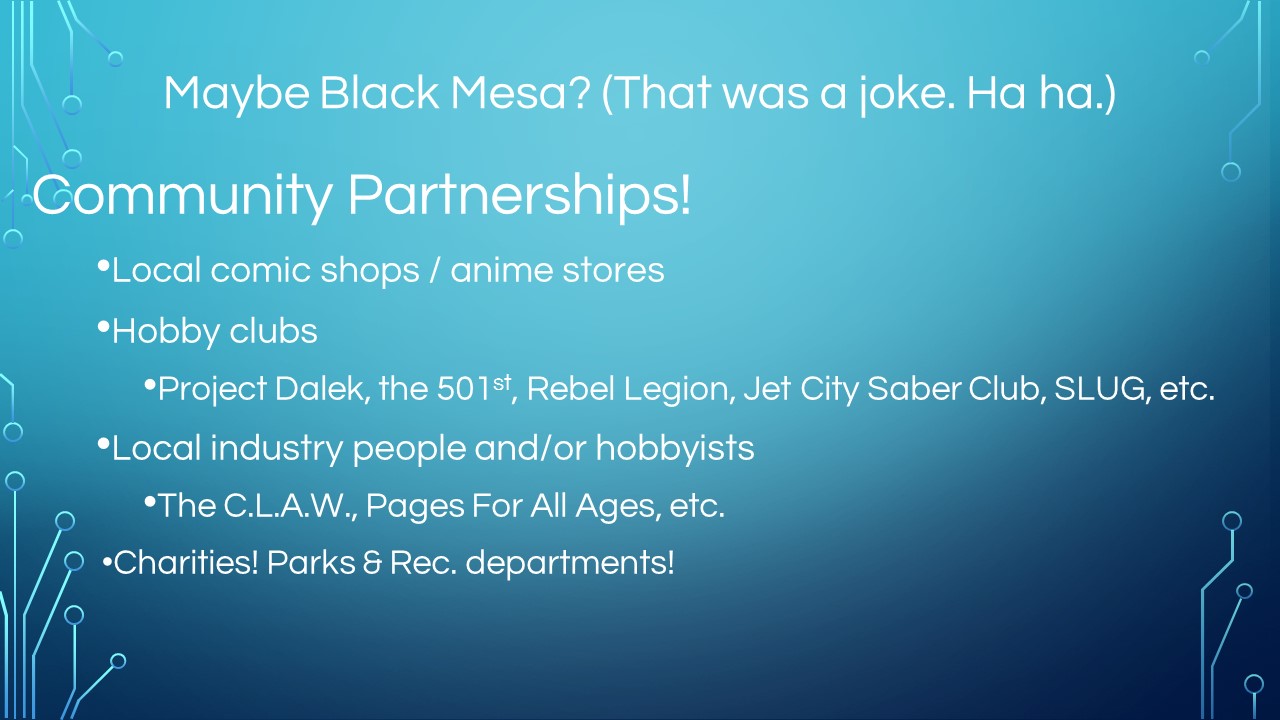
The most common funders of your work will be outside sources, like community foundations or Friends of the Library groups, and beyond that. Most of the things that you'll get, though, will be in-kind donations or loans from groups in your community. Hobbyists, local shops, or even other departments might have space and personnel with talents and ideas that will be helpful to you.
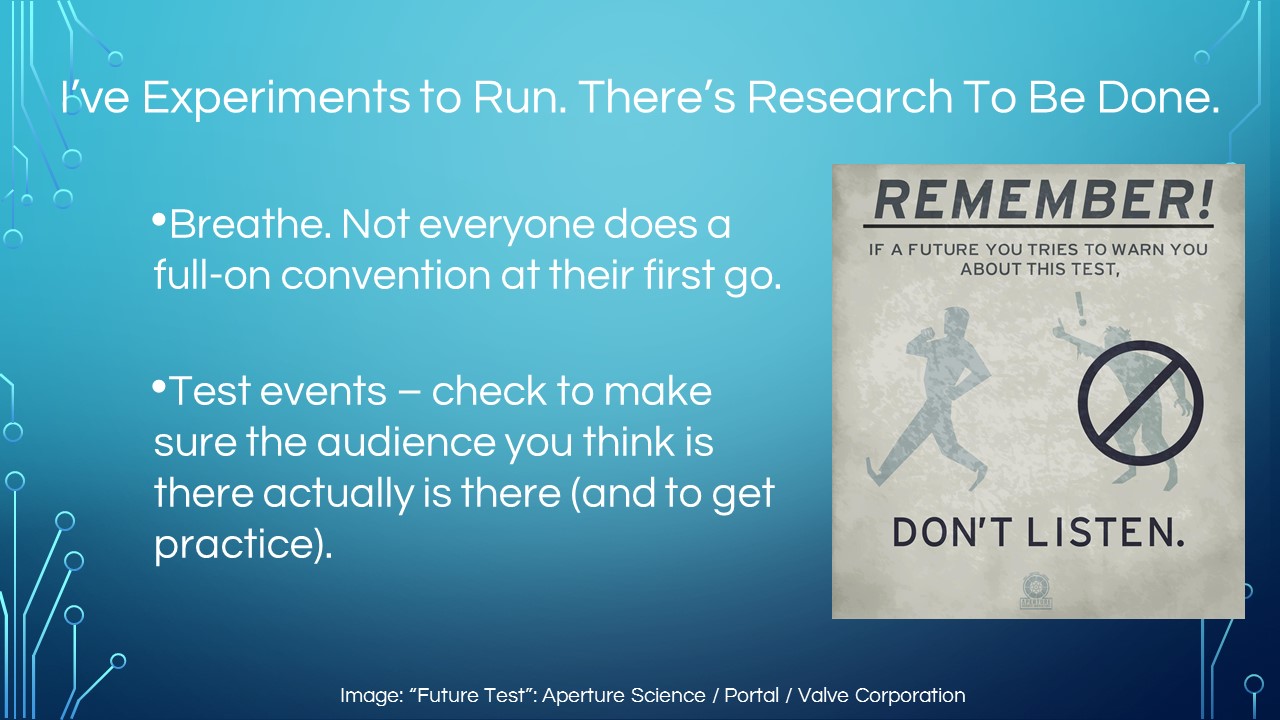

Before jumping in fully to making a con, it's a good idea to see if you actually have the audience for a full-on event by doing smaller things. By doing small things, you will likely also experience some of the common issues and/or failures that happen that will also try to plague you during a bigger event. Having practice at putting out the small fires will make it easier to know what to do for the larger ones. (And, although nobody really wants to talk about it, doing small events sometimes also helps you figure out which of the groups you want to work with are reliable and trustworthy and which ones are the ones you want to invite and work with, but not actually plan to be present at the event.)